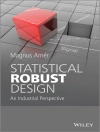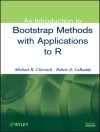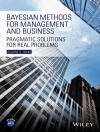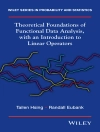This contributed volume presents some of the latest research related to model order reduction of complex dynamical systems with a focus on time-dependent problems. Chapters are written by leading researchers and users of model order reduction techniques and are based on presentations given at the 2019 edition of the workshop series Model Reduction of Complex Dynamical Systems – MODRED, held at the University of Graz in Austria. The topics considered can be divided into five categories:
- system-theoretic methods, such as balanced truncation, Hankel norm approximation, and reduced-basis methods;
- data-driven methods, including Loewner matrix and pencil-based approaches, dynamic mode decomposition, and kernel-based methods;
- surrogate modeling for design and optimization, with special emphasis on control and data assimilation;
- model reduction methods in applications, such as control and network systems, computational electromagnetics, structural mechanics, and fluid dynamics; and
- model order reduction software packages and benchmarks.
This volume will be an ideal resource for graduate students and researchers in all areas of model reduction, as well as those working in applied mathematics and theoretical informatics.
Table of Content
D. S. Karachlios, I. V. Gosea, A. C. Antoulas, On Bilinear Time Domain Identification and Reduction in the Loewner Framework.- Nguyen Thanh Son, Pierre-Yves Gousenbourger, Estelle Massart, Tatjana Stykel, Balanced Truncation for Parametric Linear Systems using Interpolation of Gramians: A Comparison of Algebraic and Geometric Approaches.- Ion Victor Gosea, Igor Pontes Duff, Toward Fitting Structured Nonlinear Systems by Means of Dynamic Mode Decomposition.- Peter Benner, Sara Grundel, Petar Mlinaric, Clustering-Based Model Order Reduction for Nonlinear Network Systems.- Sridhar Chellappa, Lihong Feng, Valentin de la Rubia, Peter Benner, Adaptive Interpolatory MOR by Learning the Error Estimator in the Parameter Domain.- C. Bertram, H. Fassbender, A Link Between Gramian Based Model Order Reduction and Moment Matching.- Christian Himpe, Comparing (Empirical-Gramian-Based) Model Order Reduction Algorithms.- Rupert Ullmann, Stefan Sicklinger, Gerhard Müller, Optimiztion-Based Parametric Model Order Reduction for the Application to the Frequency Domain Analysis of Complex Systems.- Sajad Naderi Lordejani, Bart Besselink, Antoine Chaillet, Nathan van de Wouw, On Extended Model Order Reduction for Linear Time Delay Systems.-Artur Jungiewicz, Christoph Ludwig, Shuwen Sun, Utz Wever, Roland Wüchner, A Practical Method for the Reduction of Linear Thermo-mechanical Dynamic Equations.- Saifon Chaturantabut, Thomas Freeze, Elias Salomão Helou, Nicole Henning-Schroeder, Charles H. Lee, Reduced Order Methods in Medical Imaging.- Harikrishnan K. Sreekumar, Rupert Ullmann, Stefan Sicklinger, Sabine C. Langer, Efficient Krylov Subspace Techniques for Model Order Reduction of Automotive Structures for Vibroacoustic Applications.- Gaetano Pascarella, Marco Fossati, Model-Based Adaptive MOR Framework for Unsteady Flows around Lifting Bodies.- Michael Hinze, Denis Korolev, Reduced Basis Methods for Quasilinear Elliptic PDEs with Applications to Permanent Magnet Synchronous Motors.- Süleyman Yildiz, Murat Unzuca, Bülent Karasözen, Structure-Preserving Reduced Order Modeling of Non-Traditional Shallow Water Equation.- Stephan Rave, Jens Saak, A Non-Stationary Thermal-Block Benchmark Model for Parametric Model Order Reduction.- Petar Mlinaric, Stephan Rave, Jens Saak, Parametric Model Order Reduction Using py MOR.- Peter Benner, Martin Köhler, Jens Saak, Matrix Equations, Sparse Solvers: M.E.S.S.-2.0.1 – Philosophy, Features and Application for (Parametric) Model Order Reduction.- Peter Benner, Steffen W. R. Werner, MORLAB – The Model Order Reduction LABoratory.












